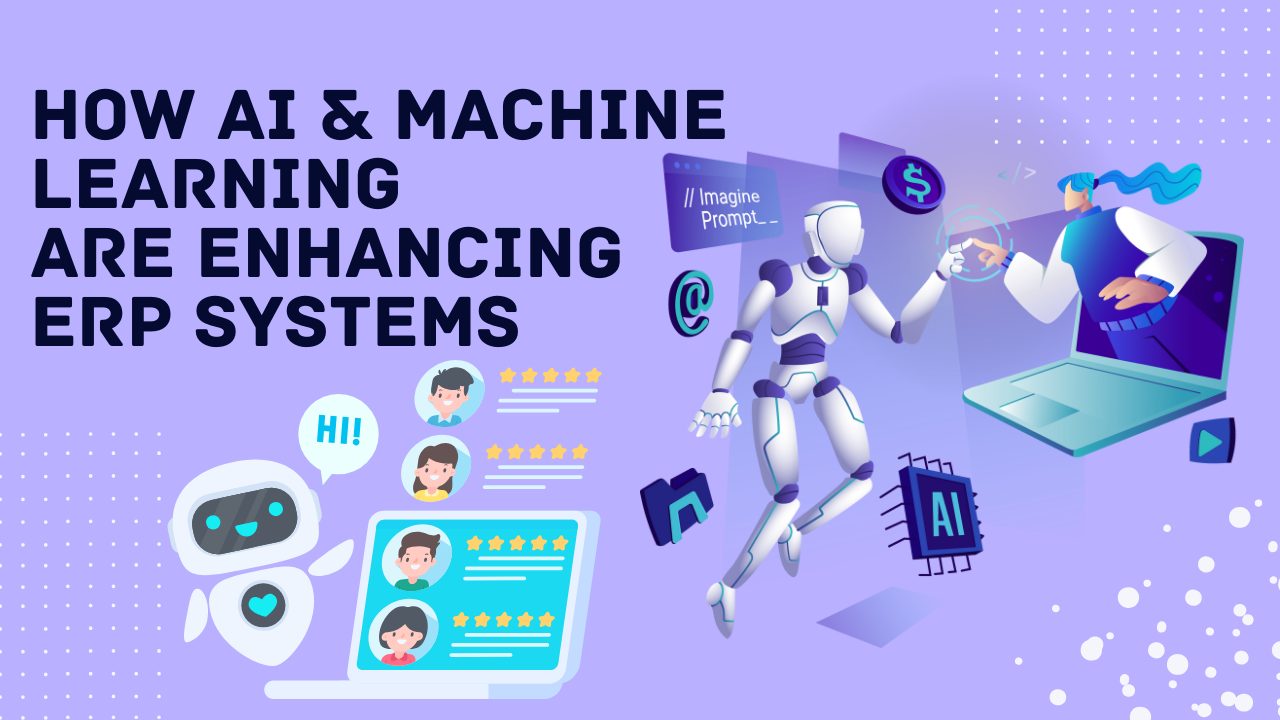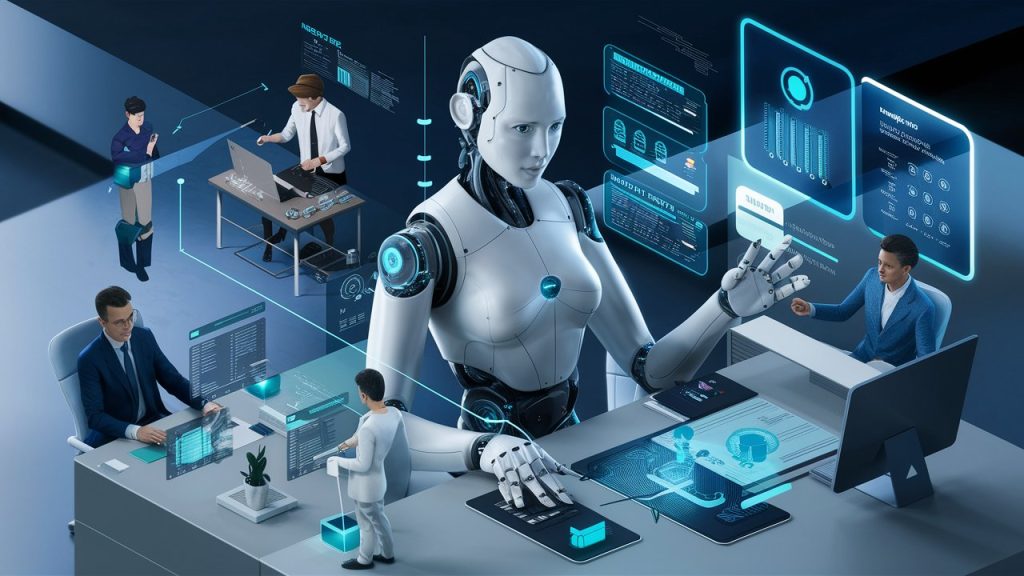Enterprise Resource Planning (ERP) systems have been at the heart of business operations for decades, streamlining processes and enhancing efficiency. With the integration of AI and Machine Learning (ML), ERP systems have undergone a significant transformation, empowering organizations to achieve unprecedented levels of productivity and intelligence. Let’s explore how AI and Machine Learning are enhancing ERP systems in various aspects of business operations.
Enhancing ERP Decision-Making with AI and Machine Learning

AI and Machine Learning have revolutionized decision-making in ERP systems. By analyzing vast amounts of data in real time, these technologies identify patterns and trends that were previously undetectable. Businesses can make more informed decisions with predictive analytics, allowing them to anticipate market demands, optimize inventory levels, and allocate resources effectively.
Furthermore, AI-powered ERP systems can provide scenario analysis. For instance, ML algorithms simulate multiple business scenarios to evaluate outcomes, enabling decision-makers to choose the most favorable course of action. This shift from reactive to proactive decision-making is a game-changer for enterprises aiming to stay ahead in competitive markets.
Intelligent Automation
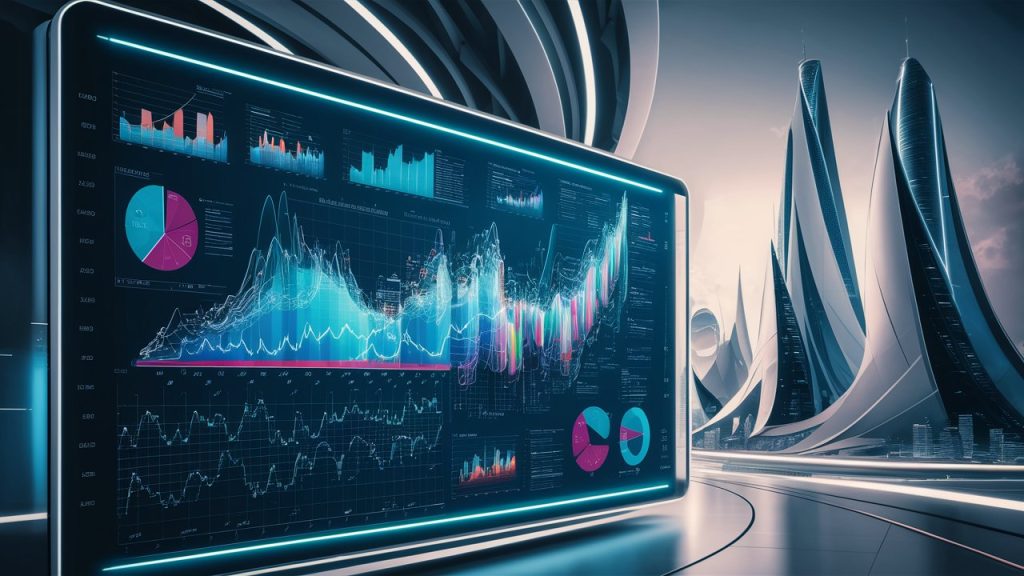
Automation has always been a key feature of ERP systems, but AI and ML take it to a whole new level. Routine and repetitive tasks, such as data entry, invoice processing, and report generation, are now managed with minimal human intervention. This reduces errors and frees up employees to focus on strategic activities that add more value.
Additionally, intelligent automation powered by AI allows ERP systems to learn from historical data. For example, ML algorithms can identify inefficiencies in workflows and suggest process improvements, making operations leaner and more efficient over time. This continuous learning capability ensures that ERP systems remain dynamic and adaptable.
Improved User Experience
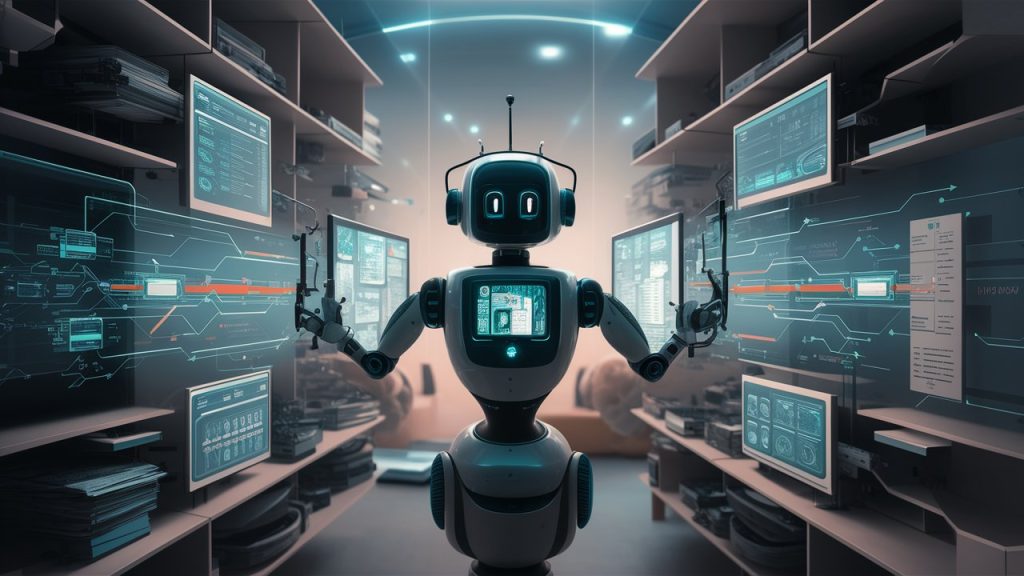
One of the most noticeable enhancements brought by AI and Machine Learning is the improved user experience in ERP systems. AI-driven chatbots and virtual assistants provide users with instant support, answering queries and guiding them through complex processes. This ensures that employees can navigate ERP systems with ease, boosting productivity and satisfaction.
Moreover, AI personalizes user interfaces based on individual preferences and roles. For example, an HR manager might see analytics and dashboards relevant to workforce management, while a supply chain manager gets insights tailored to logistics and inventory. This customization ensures that users receive the information they need without being overwhelmed by irrelevant data. Dive deeper into our [blog posts] for in-depth insights and examples.
More Secure Systems and Less Frauds
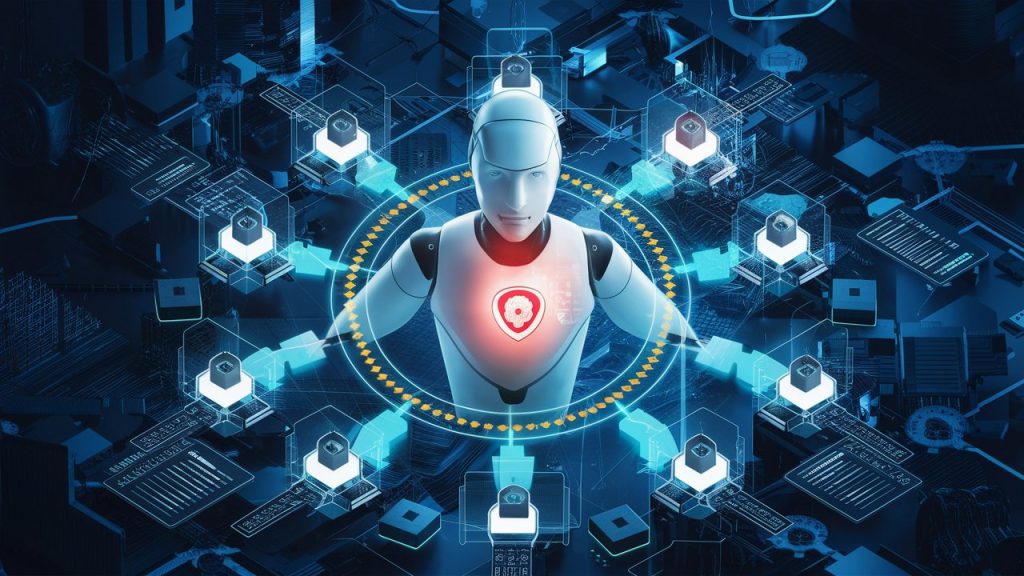
Security is a top priority for any ERP system, and AI and Machine Learning significantly enhance this aspect. By continuously monitoring user behavior and system activity, AI algorithms detect anomalies that could indicate potential security breaches or fraudulent activities. For instance, if an employee’s access patterns deviate from their usual behavior, the system can flag this as a potential threat.
Furthermore, ML-powered risk assessment tools evaluate vulnerabilities in real time, providing actionable insights to strengthen security protocols. This proactive approach ensures that ERP systems remain robust against cyber threats, safeguarding sensitive business data and reducing financial losses due to fraud.
Supply Chain Optimization
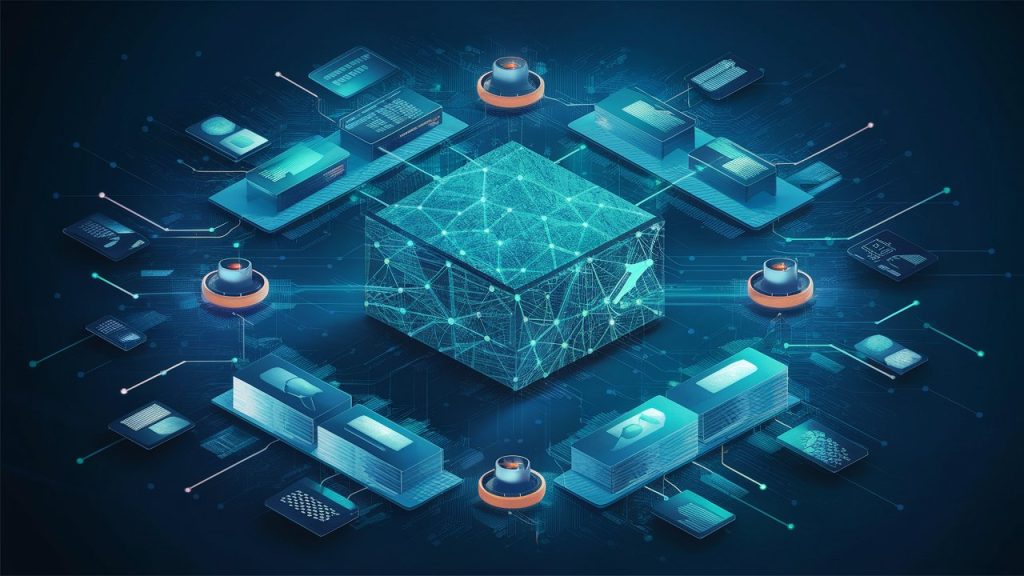
AI and Machine Learning are transforming supply chain management within ERP systems by providing end-to-end visibility and predictive capabilities. Real-time data from suppliers, warehouses, and transportation networks is analyzed to identify bottlenecks, forecast demand, and optimize inventory levels. Businesses can minimize waste, reduce costs, and ensure timely deliveries.
In addition, ML algorithms enable dynamic supply chain adjustments. For example, if a supplier’s delivery is delayed, the ERP system can automatically reroute orders to alternative suppliers, minimizing disruptions. This agility is crucial in today’s fast-paced business environment, where supply chain resilience can make or break a company.
Enhancing Customer Relationship Management
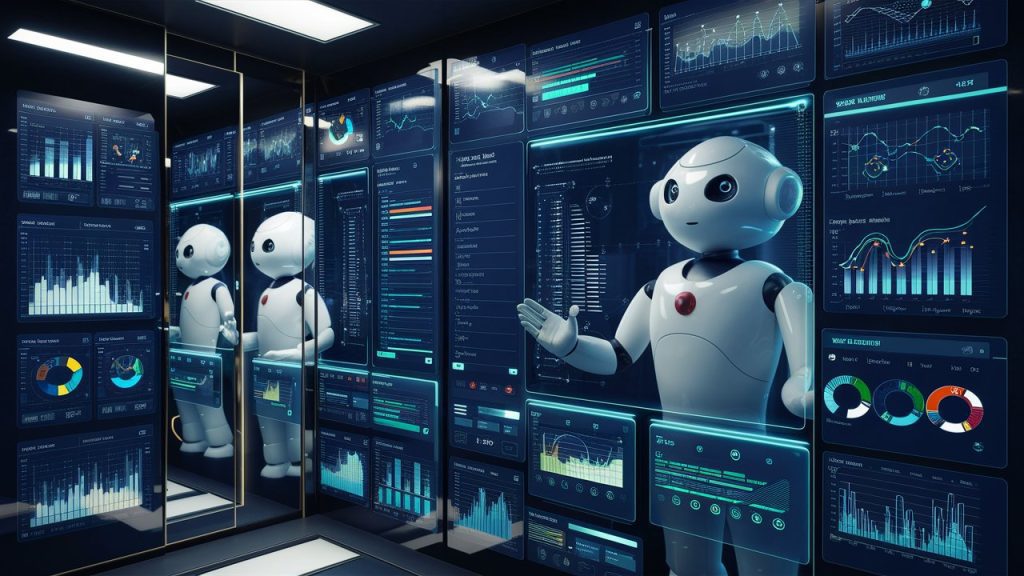
Customer Relationship Management CRM modules within ERP systems have greatly benefited from AI and Machine Learning. By analyzing customer data, these technologies provide insights into buying behaviors, preferences, and trends. This allows businesses to create personalized marketing campaigns and improve customer service.
For instance, AI-powered chatbots can handle customer inquiries round the clock, resolving issues quickly and efficiently. ML algorithms also predict customer churn by identifying early warning signs, enabling businesses to take proactive measures to retain valuable clients. This customer-centric approach enhances loyalty and drives revenue growth.
HR and Talent Management
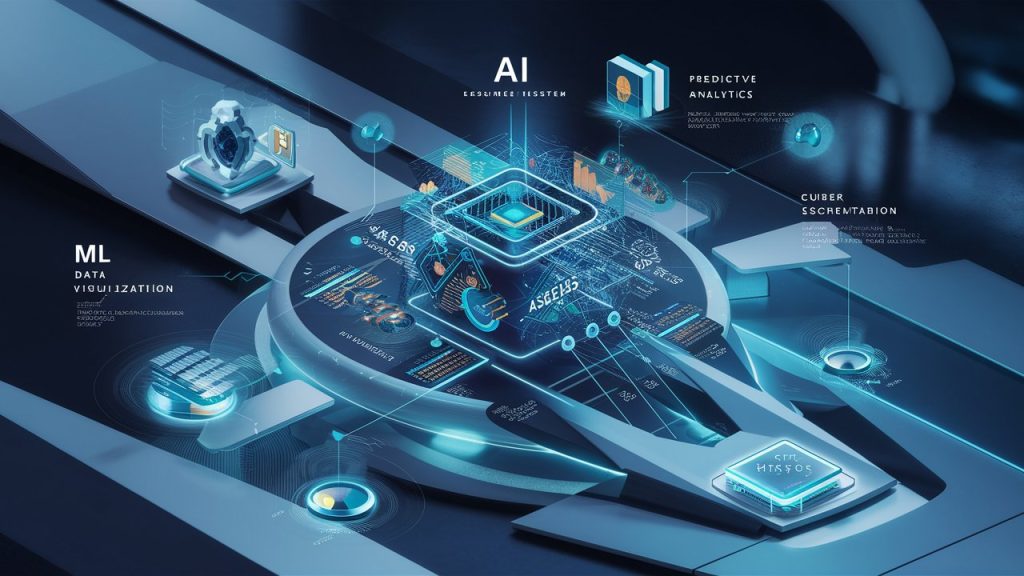
AI and Machine Learning have made significant strides in HR and talent management within ERP systems. These technologies streamline recruitment by scanning resumes, matching candidates to job requirements, and even conducting preliminary interviews through AI-powered bots. This saves time and ensures that only the most qualified candidates are shortlisted.
Furthermore, AI algorithms analyze employee performance data to identify skill gaps and recommend personalized training programs. Predictive analytics can also forecast workforce trends, such as attrition rates and staffing needs, enabling HR teams to plan effectively. This data-driven approach ensures that organizations attract, develop, and retain top talent.
Scalability and Flexibility
As businesses grow, their ERP systems must scale to accommodate increased data and operational complexity. AI and Machine Learning enhance the scalability and flexibility of ERP systems by automating resource allocation and optimizing system performance. This ensures that businesses can expand without experiencing growing pains.
Moreover, ML algorithms enable ERP systems to adapt to changing business requirements. For instance, they can integrate new functionalities or adjust workflows in response to market dynamics. This adaptability ensures that ERP systems remain relevant and continue to deliver value, even in rapidly evolving industries.
Conclusion
AI and Machine Learning have ushered in a new era for ERP systems, transforming them into intelligent, adaptive tools that drive business success. From enhancing decision-making and automating routine tasks to improving user experiences and securing data, these technologies are revolutionizing how businesses operate.
The integration of AI and ML ensures that ERP systems are not just tools for managing resources but strategic enablers that provide a competitive edge. As businesses continue to embrace these advancements, the future of ERP systems looks brighter than ever.

